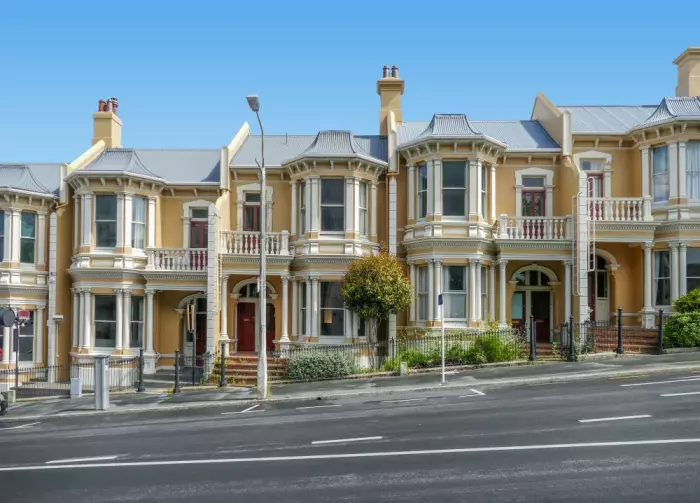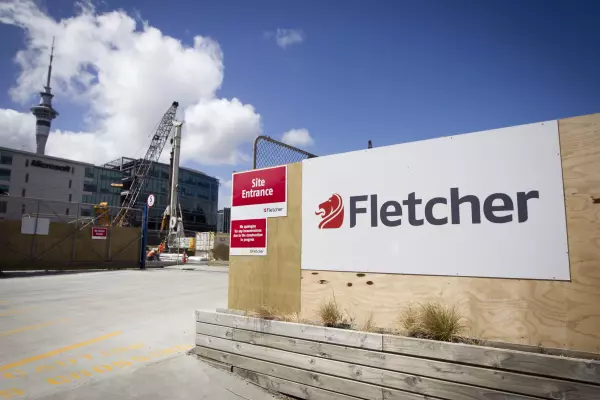Until last year, the common adage that house prices double every decade could probably have been reserved for Aucklanders.
But latest data from property analytics firm Corelogic shows the post-covid housing market frenzy means most New Zealand cities have joined the 10-year club.
Low interest rates and other economic stimulus have helped propel the current national average growth rate to 8.54%, or a 10-year growth rate of 127% - meaning the average doubling rate in house prices is close to eight-and-a-half years.
It would be lower, but Christchurch has bucked the trend.
The South Island's biggest city's average house prices hit 103% above 2004 pricing levels in 2014 (the first year Corelogic started measuring price changes monthly, based on settled sales and using a three-monthly rolling average smoothing process), but this was due to greatly reduced stock following the 2011 earthquakes.
Corelogic chief economist Kelvin Davidson said that rate of increase had since been held back by the subsequent supply response and a big jump in available houses.
So even now, after a median price bounce of 26.6% over the past year to $600,000, Christchurch City is sitting on a rolling average of 68% - at which level it will take more than 13 years to double house prices.
In contrast, buyers in Hamilton and Dunedin, both at rates of 142%, will only need to hang onto their homes for a little more than 7 years to double down.
Auckland is currently at 136%, or an average annual growth rate of just under 9%, translating to a doubling in prices every 8 years.
While that's not unusual growth for Auckland, which has been on better than a 10-year cycle since 2015, it's a dramatic acceleration for a city such as Dunedin, which before 2016 had been tracking at about 30%, or a doubling in prices every 27 years or so.
Latest Real Estate Institute of NZ numbers show that, since last May, Dunedin has seen pricing jump 29.7%, reaching what is now a median house price of $643,000. To put that into context, in December 2019, prices in Dunedin were at a median of $520,000.
Capital gains
Such price escalation has made the housing market a sure bet for capital gains, with home sellers banking $5.47 billion in profits for the first three months of 2021, a record $315,000 profit per transaction.
Corelogic's latest resales report shows 98.9% of all deals across the country yielded a healthy profit for the vendor for the first quarter of this year, reflecting the overheated nature of the market.
The big winners were Wellington house owners, who banked median profits of $506,000 per sale, up 11.8% quarter-on-quarter.
That eclipsed both Auckland, at $455,000 per deal, and Tauranga, at $402,500, for houses sold between January and March.
Both Hamilton and Dunedin were above $300,000 while Christchurch continued to lag with a median profit of $196,250, though that was almost a fifth higher than in the prior quarter.
Houses sold during the period also yielded a median return of $24,000 more than for houses sold during the final quarter of 2020 - the highest reading for the past 25 years, or since the data series started.
The returns also essentially rewarded sellers in Wellington for hanging onto their properties longer, at an average of 9.1 years before putting them on the market, ahead of the average overall of 7.4 years for those yielding a profit.
Investors selling faster
Davidson said that’s down on the average hold period of 8.5 years in 2015, which probably reflected a faster turnaround by investors who “didn’t need to own for as long to generate their capital gain”.
The median yield for those who sold between five and 10 years was $408,776 throughout NZ, or $507,248 for those selling in Auckland. For those who hung onto their properties for more than 20 years, there were returns of $655,495 across NZ and $1.06m for Auckland sellers.
On the other side of the coin, the median hold period for loss-making resales - which were few and far between at only 1.1% on average – was at a low of 3.2 years
Davidson said the results had capped what has been a decade-long upward trend, driven by low mortgage rates and a tight supply and demand balance.
However, most owner occupiers were simply recycling gains into their next purchase, which would often be accompanied by more debt, although some investors had simply booked their gains.
Davidson said while the current quarter was also expected to remain strong, the market was now “more or less” at a turning point with some softening in returns expected by the end of the year, as market conditions ease and value growth slows.
Of the very few owners who reported losses, these came in at a median of $20,000 for houses and $18,000 for apartments – although that spiked at a median of $173,000 in Tauranga City and at a low of $7,500 in Hamilton.














